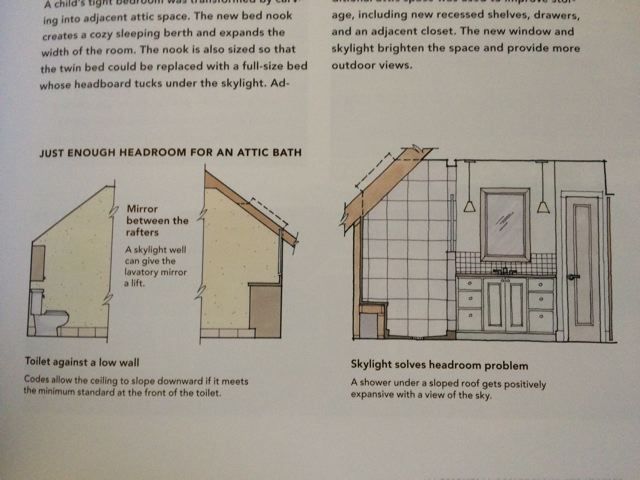Attic Minimum Height

Local codes may have stricter requirements so again be sure to check with your state and local regulations.
Attic minimum height. Know the difference between your ceiling and floor joists. Habitable attic space must satisfy the same requirements that govern rooms in the rest of the house. To extend old eight foot ceilings in a remodel aim for. The minimum ceiling height to beams girders ducts or other obstructions shall be no less than 6 feet 4 inches from the finished floor.
Have a minimum opening width of at least 20 inches. Have a minimum opening height of at least 24 inches. The rest can be less than 7 feet. Further explanation of those factors that can limit the headroom of your finished attic and other code considerations are explored below.
Living areas and hallways must have a ceiling height of 7 feet or more and bathrooms and laundry rooms must be at least 6 feet 8 inches tall. Have a sill height of no more than 44 inches above the attic floor level. For new flat coffered tray or sloped ceilings go for a minimum of nine feet. If a room has a sloping ceiling which is common in attics at least 50 percent of the room area must have a 7 foot ceiling.
Summary of residential ceiling heights therefore in summary lets is recap the above information. If the attic space is smaller than these specs then an access hatch is not required. The minimum finished ceiling height of living space varies from town to town but often falls between 6 8 and 7 6. Minimum vertical height of 30 inches measured from the top of the ceiling framing members to the bottom of the roof framing members.
At least 50 of the usable floor space should have a ceiling height of 7 5 ft. The 2012 international residential code requires an attic access opening for attics with an area greater than 30 square feet and a vertical height in excess of 30 inches. The rough framed opening. To prevent homeowners from creating living space that does not allow occupants to stand up.














































